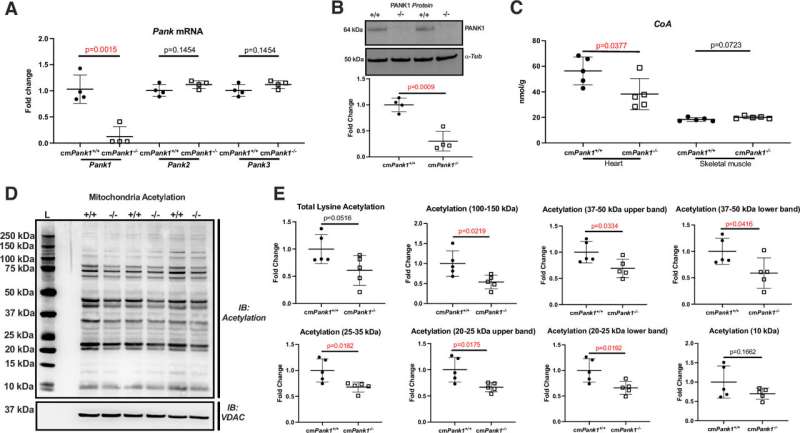Reduction in coenzyme A levels linked to heart failure

Reduced levels of coenzyme A (CoA) worsen heart failure and likely help exacerbate cardiac dysfunction during heart failure, according to a new study. In addition, the findings suggest certain metabolic pathways may be disproportionately affected by reduced CoA levels. The study is published ahead of print in the American Journal of Physiology-Heart and Circulatory Physiology and has been chosen as an APSselect article for November.
CoA is a critical molecule in the metabolism. Fluctuations in the amount of the enzyme are often observed in foundational development of many diseases, such as cancer and diabetes. Prior to this study, the link between CoA levels and heart failure had not been investigated. Using mice that lacked a specific enzyme for CoA production, physiologists at the Diabetes and Obesity Center at the University of Louisville School of Medicine in Kentucky tested whether reduced CoA levels contribute to heart failure.
The research team uncovered that gene expression of a key CoA synthesizing enzyme is decreased during heart failure. This suggests CoA biosynthesis may be limited during heart failure, worsening the condition.
"We think reductions in CoA availability may impair the intrinsic metabolic flexibility of the heart," said Timothy Ndagi Audam, Ph.D., a postdoctoral fellow and the study's first author. "With this understanding, we are now pursuing an approach to increase CoA levels in the heart. Because the failing heart is already energy starved, an approach aimed at sustaining or improving cardiac energetics through increasing CoA levels may be a viable treatment option for managing heart failure."
More information: Timothy N. Audam et al, Cardiac PANK1 deletion exacerbates ventricular dysfunction during pressure overload, American Journal of Physiology-Heart and Circulatory Physiology (2021). DOI: 10.1152/ajpheart.00411.2021




















